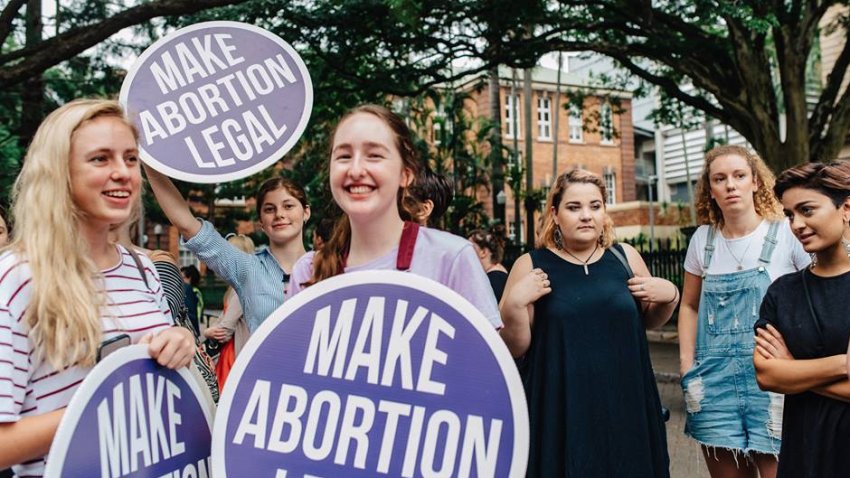
Queensland parliament will finally start debating whether to make abortion legal on October 16.
It is currently a crime to undergo, perform or supply anything for an abortion. Doctors can only perform abortions if they believe it is necessary to prevent serious danger to the life or physical or mental health of the pregnant person.
The law banning abortion was written in 1899. But community attitudes have clearly changed since then.
Queensland's first abortion clinic opened in the 1970s and there is now a widespread expectation that a pregnant woman should be able to terminate her pregnancy if she so decides.
But this is far from being the case across the state.
The formerly clandestine nature of abortion provision, and the emergence of abortion provision as a stigmatised niche provided privately, means those seeking abortion are mostly unable to obtain services in the state's public hospitals.
Although about one in four women will undergo an abortion at some point, access in public hospitals is limited to those who fit only a very strict interpretation of the legal requirement for "serious danger" to life or health. Even then, not all hospitals provide services.
Private clinics that do provide abortions, and GPs who prescribe medical abortions (medications to induce miscarriage), do so with a thin layer of protection from prosecution — namely, the defence that it is necessary and the outrage that prosecution would spark.
Many doctors who would willingly provide abortion do not because of the legal uncertainty. Health professionals and administrators who are opposed to abortion use the law to explain why "we don't do that here".
Most of the private clinics are in south-east Queensland, with two further north in Rockhampton and Townsville. When compared to the roughly 200 public hospitals across the state, it is self-evident that the roughly 10 private clinics do not ensure fair, free access to abortion services for all who need it.
The growing availability of medical abortion through GPs and telehealth has the potential to dramatically improve access. Extending its availability is important, but it is not suitable for everyone who needs abortion care and does not eliminate the need for free abortions in public hospitals.
Abortion law reform is overdue.
Alone, it will not transform the culture of stigma and refusal that thrives in a somewhat overlapping segment of religious and political life, and the healthcare professions.
But it will pave the way for that transformation.
The bill before state parliament will remove all criminal sanctions on a woman undergoing an abortion.
It will make it lawful for a doctor to perform abortions up to 22 weeks into a pregnancy.
After 22 weeks, it will be legal if the doctor believes it needs to be performed, as long as another doctor agrees. If it is an emergency, there is no requirement to consult.
The bill establishes a range of health professionals (nurses, midwives, pharmacists and others) who may assist.
It establishes protected safe zones of 150 metres around abortion services, so that patients and staff will not face harassment.
It obliges health professionals who are asked to perform, assist or give advice about abortion to disclose if they have a conscientious objection. In that case, they must refer or transfer care to a professional or service that will be able to provide what is being asked for.
The bill has real limitations.
It makes it a crime for any trained health professional other than a doctor to perform an abortion, and anyone other than the listed health professionals to assist.
It keeps abortion in the Criminal Code, instead of allowing it to be regulated like other healthcare.
This will prevent other health professions from developing training programs to enable their members to safely provide abortions.
It has harsher punishments for anyone helping a woman obtain an abortion without a doctor compared to those seeking other treatments.
The 22-week restriction offers support to the idea that, at a certain point, it is not enough that a woman make the decision to end her pregnancy.
In these ways, it perpetuates the stigma surrounding abortion and fails to uphold women's rights to decide.
Nevertheless, the bill offers the prospect of bringing Queensland abortion law into the 21st century and paving the way towards abortion becoming free, safe, legal and accessible on demand, without apology.
Every parliamentarian should support it.
[Dr Kamala Emanuel is an abortion doctor and a long-term campaigner for abortion rights. Rallies in support of a reform bill will be held in Cairns on October 13 and Brisbane on October 14.]